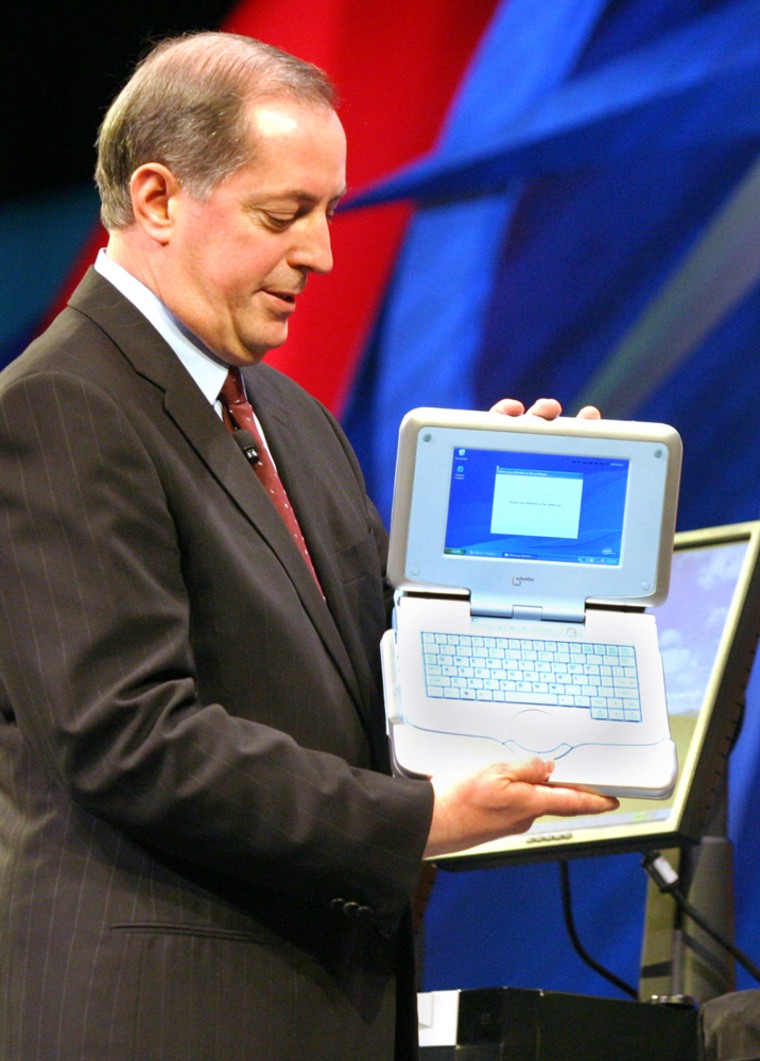The head of the world's largest chip maker on Wednesday unveiled a mobile personal computer designed to provide affordable collaborative learning environments for teachers and students around the world.
Intel Corp. Chief Executive Paul Otellini said the $400 machines — code-named "Eduwise" — will feature built-in wireless and will be able to run Microsoft Corp.'s Windows or the Linux operating system.
"What we want to do is accelerate to uncompromised technology for everyone in the world," Otellini said during a demonstration at the World Congress on Information Technology in Austin. "No one wants to cross the digital divide with yesterday's technology."
The flip-open Eduwise computer includes a handle, light blue accents and snaps shut like a purse. Special software allows students in a classroom to view presentations, take tests and interact individually with their teachers using a built-in wireless connection.
The cheaper PCs are part of a $1 billion investment by Intel over the next five years to promote the use of computers in schools, cafes and other public spots in developing countries, Otellini said.
The Eduwise machine was designed by Santa Clara, Calif.-based Intel but will be built by its computer-making customers. Otellini said the devices should be available next year.
Many high-tech companies, including Intel rival Advanced Micro Devices Inc. and Microsoft, have announced similar initiatives in an effort close the digital divide between developed and developing nations.
Massachusetts Institute of Technology professor Nicholas Negroponte's nonprofit One Laptop Per Child association hopes to begin providing $100 laptops to millions of children in China, India, Egypt, Brazil, Thailand, Nigeria and Argentina by early 2007.
Tentative designs call for a machine that uses one-tenth of the power of conventional laptops, a 7-inch screen and the Linux operating system. The project's partners include Google Inc. and AMD.
In an earlier speech at the conference, Microsoft CEO Steve Ballmer said the benefits of the global spread of technology are only starting to be felt.
"What we see going forward over the next five, ten, 15 years is a world of technology that has the potential itself to be even more important than the positive change it has enabled society in the past ten years," he said. "Computers will see, computers will listen, computers will understand. Computers will help the world grow smaller and help people to collaborate in new ways."
(MSNBC.com is a Microsoft - NBC joint venture.)
Also Wednesday, Otellini said Intel had reached a deal with the Mexican government to provide new, low-cost PCs to 300,000 teachers by the end of this year.
"The federal government of Mexico has made great progress in bringing computing into the primary and secondary school classrooms of our country," Mexican President Vicente Fox said in a prepared statement.
Fox didn't attend the conference but gave a short speech that was projected on two large video screens.
